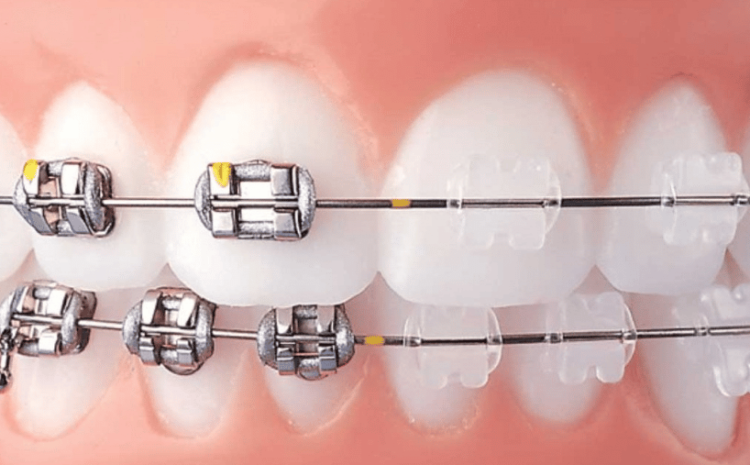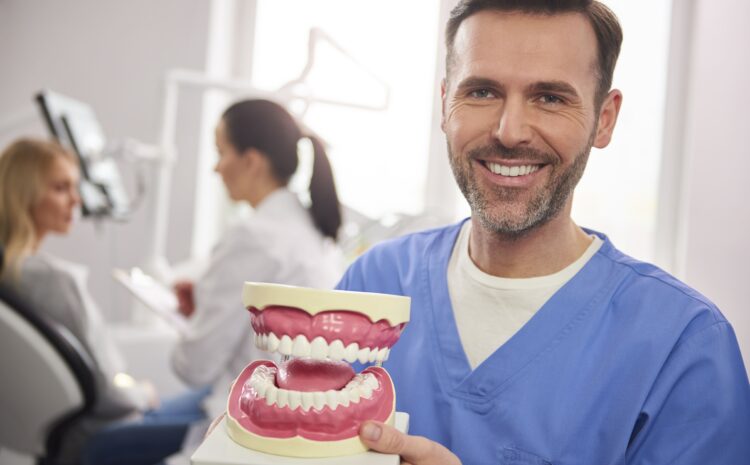
Can Dental Implants Become Infected? A Guide to Risks and Prevention
Dental implants have transformed tooth replacement methods, providing a robust and visually appealing option for those with missing teeth. These artificial roots, made from titanium, fuse with the jawbone to create a reliable base for crowns, bridges, or dentures. However, like any surgical intervention, dental implants carry certain risks, including the possibility of infection. It is essential for anyone contemplating or currently having dental implants to comprehend how infections may arise and how they can be prevented.
What Are Dental Implants in Kharghar, Navi Mumbai ?
Dental implants act as synthetic roots for absent teeth. Once inserted into the jawbone, they undergo a process called osseointegration, where they bond with the surrounding bone tissue. This integration allows for the secure attachment of crowns or other prosthetic devices. Among various tooth replacement solutions available today, dental implants are known for their longevity and can last many years if properly maintained. However, inadequate care can lead to complications.
The Importance of Oral Hygiene and Regular Check-Ups
Similar to natural teeth, dental implants depend on healthy gums and bone structure for support. To prolong their lifespan and functionality, maintaining excellent oral hygiene is vital. This includes:
- Brushing and Flossing: Consistent brushing and flossing are essential in preventing plaque accumulation around the implant area.
- Regular Check-Ups: Routine visits to an implant specialist are crucial for evaluating the condition of your implants and adjacent tissues. These appointments may involve professional cleanings as well as necessary adjustments to crowns or other fixtures. Annual dental X-rays are also recommended to assess bone levels and ensure that the implant remains securely anchored in place.
- Managing Health Conditions: For individuals with pre-existing health issues such as diabetes or autoimmune disorders, it is critical to manage overall health effectively since these conditions can impact healing processes and immune responses against infections. Adhering strictly to prescribed medical treatments while maintaining open communication with healthcare providers is essential.
- Dietary Considerations: Nutrition significantly influences oral health; thus adhering to dietary recommendations from your dentist can bolster both gum health and implant integrity. A well-balanced diet rich in vitamins and minerals fosters healing as well as general wellness.
Types of Infections: Implant Mucositis vs Peri-implantitis
Infections associated with dental implants usually originate in gum tissue but may escalate if not treated promptly. The two main types include:
- Implant Mucositis: This condition represents early-stage inflammation of gum tissue surrounding an implant characterized by symptoms such as swelling, redness, and tenderness in that area. If identified early enough, this issue can often be resolved through professional cleaning combined with better oral hygiene practices.
- Peri-implantitis: If untreated mucositis progresses into peri-implantitis—an inflammatory condition affecting both gums and supporting bone—it may present symptoms like persistent pain near the implant site increased looseness of the implant pus discharge from around it an unpleasant taste in one’s mouth In cases where peri-implantitis is confirmed more invasive procedures might be required including surgical cleaning or bone grafts; severe instances could necessitate complete removal of the existing implant followed by placement at a later time.
Preventive Measures Against Infection
To safeguard against infections around dental implants—critical for their long-term success—consider implementing these effective strategies:
- Maintain Good Oral Hygiene: Brush twice daily and floss regularly consider using an antibacterial mouthwash.
- Avoid Smoking: Quitting smoking is advisable since tobacco use heightens infection risks while impeding healing processes.
- Schedule Regular Appointments: Keep up-to-date on routine check-ups that monitor your implant’s health status.
- Follow Dietary Recommendations: Stick closely to dietary guidance provided by your dentist aimed at fostering healthy gums along with strong bones.
Conclusion
While dental implants represent a dependable solution for replacing missing teeth effectively understanding potential risks—including infection—is imperative when considering them as an option By practising good oral hygiene managing underlying health conditions implementing preventive strategies you significantly improve chances of successful outcomes regarding your dental implants If you have any concerns about them, and wish to explore available options, consult Dr Ganesh Bhandari the best teeth doctor in Kharghar, Navi Mumbai . With diligent care and attention, you can maintain a vibrant healthy smile over many years ahead!



